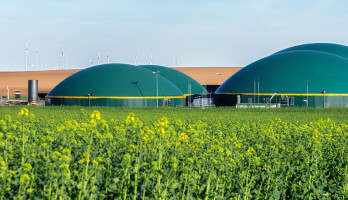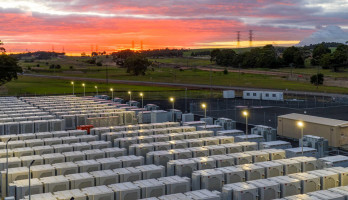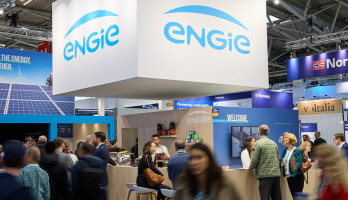
New energy funding programs: You should know about these attractive options
Climate protection and energy efficiency cost money. But right now, companies are benefiting from attractive federal funding initiatives. High time, then, to get a quick overview.
„Energy efficiency is the central key to reducing CO2 emissions, lowering energy consumption and thus increasing the sustainability of buildings and facilities.“
Manfred Schmitz, CEO of ENGIE Germany
New energy incentive programs open up operationally relevant options for companies. They offer great opportunities to create value and help make investments in energy-efficient processes - or make them possible in the first place. A lot is currently happening in the subsidy landscape in Germany. Three current funding measures are particularly noteworthy in this regard:
- Federal funding for efficient buildings (BEG)
- Federal funding for efficient heating networks (BEW)
- Federal funding for energy and resource efficiency in the economy (EEW).
Federal support for efficient buildings - for renovation and new construction
The Federal Support for Efficient Buildings (BEG) is a support program for greater energy efficiency in the building sector. It combines previously existing programs into a clear grant and loan offer. Applications can be submitted to the Federal Office of Economics and Export Control (BAFA) or the Reconstruction Loan Corporation (KfW). Currently, parts of the subsidies have been suspended by the new Federal Ministry of Economics and Climate Protection (BMWK). Certain transitional arrangements apply until the 2022 federal budget is passed by the Bundestag. Three subprograms are available for selection:
Federal funding for efficient heating networks (BEW) - turbo for the heat turnaround
The new federal subsidy for efficient heat networks (BEW) is intended to provide a decisive boost to the heat turnaround in Germany. To this end, the German government has published a draft for a new funding program, which will come into force in the short term once it has been approved by the EU Commission under state aid law. The German Federal Ministry of Economics and Climate Protection has announced an immediate program to this end. However, it is not yet clear exactly when this will come into force.
The BEW provides for the promotion of efficiency measures for heating networks in three modules:
- Promotion of transformation concepts and feasibility studies regarding efficient heating networks in the amount of up to 50 percent of the eligible costs (maximum 600,000 euros).
- promotion of investments and operation of efficient heat networks in the amount of up to 40 percent of the eligible investment costs. This includes in particular investments in heat sources from renewable energies and in the infrastructure for heat distribution.
- funding of individual measures in the amount of up to 40 percent of the eligible investment costs. These include investment measures that can be implemented quickly, such as the installation of biomass and solar thermal systems, heat pumps and storage systems, and direct electric heat generators.
Federal support for energy and resource efficiency in business (EEW) - more climate protection in all sectors
Third energy support program of the federal government is the Federal Support for Energy and Resource Efficiency in Business (EEW). This is an amendment to the "Federal Support for Energy Efficiency in Business" initiative, which was already introduced in 2019 and is open to all sectors. What is new - in addition to the addition of the term "resource efficiency" - is the promotion of investment measures for the energy and resource-oriented optimization of economic processes, particularly in terms of energy efficiency.
In practical terms, this involves a direct grant from BAFA of up to 15 million euros, depending on the funding project, or a loan from KfW of up to 25 million euros with a repayment subsidy of 55 percent. Funding is granted in four modules for:
- investments in cross-sectional technologies - for example, energy-efficient electric motors or insulation of industrial plants.
- investments in the provision of process heat from renewable energies - for example, through solar collectors or heat pumps.
- the purchase and installation of sensor, control, measurement and regulation technology and energy management software.
- the energy- and resource-oriented optimization of plants and processes.
Financial scope for more energy efficiency: taking advantage of energy subsidy programs with ENGIE
When it comes to energy supply, we offer our customers an all-round carefree package. As an energy contractor, we first take on the technical requirements and take care of the planning, construction, commissioning and optimization of plant technology and heating systems. We also manage all regulatory processes, which of course include the application for subsidies.
Currently, our focus is on EEW funding in modules 2 and 4. In this regard, we can provide you with specific support in the promotion and financing of solar collector systems, biomass systems and heat pumps, as well as in the area of energy- and resource-related process optimization and the operational, efficient use of waste heat from production processes. Simply let our Expert:innenteam advise you on this. We will also be happy to check what is possible for you in terms of BEG and BEW.
Our Expert












